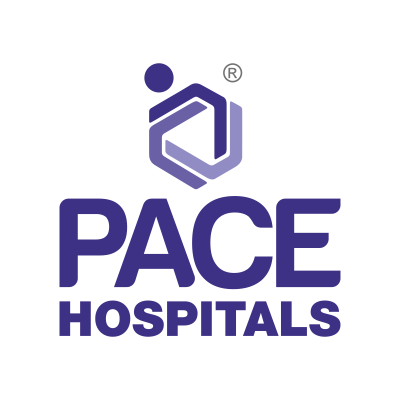
At PACE Hospitals, we are committed to providing advanced and compassionate care for patients living with Parkinson’s disease. Under the guidance of an experienced parkinson's disease doctor, our team focuses on accurate diagnosis, timely treatment, and personalised care plans designed to improve quality of life at every stage of the condition.
Our highly trained parkinson's disease specialist in Hyderabad utilises state-of-the-art diagnostic tools and evidence-based treatment methods. From medications and physiotherapy to advanced surgical options such as Deep Brain Stimulation (DBS), we ensure that each patient receives the proper care at the right time. What sets us apart is our holistic approach, which combines medical expertise with rehabilitation, counselling, and lifestyle support to help patients maintain independence for as long as possible.
As one of the leading neurology centers in Hyderabad, PACE Hospitals is often chosen by families searching for the best doctor for parkinson disease. Patients seeking a reliable Parkinson's disease doctor near me trust us due to our patient-centric care, modern infrastructure, and multidisciplinary team.
PACE Hospitals is one of the Best Neurology Hospitals in Hyderabad, Telangana, India, providing holistic and patient centric neurology treatment. The team of experienced and skilled neurology doctors, neurosurgeons have vast expertise in managing all kind of critical neurological conditions, including:
What is Parkinson’s Disease? A Complete Guide to Symptoms, Causes, and Treatment Options
Parkinson’s Disease (PD) is a chronic, progressive disorder of the nervous system that primarily affects movement. It is the second most common neurodegenerative disease after Alzheimer’s disease and usually occurs in people over the age of 60, although younger individuals can also develop the condition. Parkinson’s Disease is named after Dr. James Parkinson, the English physician who first described it in 1817.
Understanding Parkinson’s Disease
The brain contains specialized cells called neurons that produce a chemical messenger known as dopamine. Dopamine plays a vital role in controlling smooth and coordinated muscle movements. In Parkinson’s Disease, these dopamine-producing neurons in a region of the brain called the substantia nigra gradually degenerate and die.
As dopamine levels drop, patients develop motor symptoms such as tremors, stiffness, slowness of movement, and problems with balance. In addition to motor symptoms, Parkinson’s also causes non-motor symptoms like mood changes, sleep problems, memory difficulties, and digestive issues.
Parkinson’s is a progressive disease, meaning symptoms worsen over time. However, with early diagnosis and proper management, patients can live meaningful, independent lives for many years.
Causes and Risk Factors
The exact cause of Parkinson’s Disease is not fully understood. Researchers believe it results from a combination of genetic and environmental factors.
Symptoms of Parkinson’s Disease
Parkinson’s symptoms vary from person to person, and not everyone experiences all of them. They are broadly divided into motor (movement-related) and non-motor (non-movement-related) symptoms.
Motor Symptoms
Non-Motor Symptoms
Stages of Parkinson’s Disease
Doctors often use the Hoehn and Yahr scale to classify Parkinson’s progression:
Diagnosis
There is no single test for Parkinson’s. Diagnosis is mainly clinical, based on symptoms, medical history, and neurological examination. Doctors may also use:
Early diagnosis is important because starting treatment in the early stages helps improve long-term outcomes.
Treatment Options
Although there is no cure for Parkinson’s Disease yet, several treatments can effectively control symptoms.
Medications
Surgical Options
Rehabilitation Therapies
Lifestyle and Self-Care
In addition to medical treatments, lifestyle changes play an important role in managing Parkinson’s:
Complications of Parkinson’s Disease
As the disease progresses, complications may include:
Why Choose PACE Hospitals for Parkinson’s Disease Treatment?
At PACE Hospitals, we are committed to providing world-class care for patients living with Parkinson’s Disease. Our multidisciplinary approach combines expert neurology care, advanced technology, and patient-focused rehabilitation to ensure the best outcomes.
✅ Expert Neurology Team
Our highly experienced neurologists and movement disorder specialists have extensive expertise in diagnosing and managing Parkinson’s Disease across all stages.
✅ Comprehensive Diagnostics
We use advanced imaging and diagnostic tools such as MRI, CT, and DaTscan for accurate assessment, ensuring early detection and tailored treatment strategies.
✅ Advanced Treatment Options
From Levodopa-based therapy to newer medications, we provide the most effective medical treatments. For advanced cases, we offer Deep Brain Stimulation (DBS) surgery, a cutting-edge procedure to improve movement control and quality of life.
✅ Personalized Care Plans
Each patient receives a customized treatment plan addressing both motor and non-motor symptoms, focusing on improving mobility, reducing complications, and enhancing independence.
✅ Rehabilitation & Support Services
Our physiotherapists, occupational therapists, speech therapists, and psychologists provide complete support for rehabilitation, helping patients manage daily life effectively.
👉 Meet our advanced Parkinson’s Disease treatment specialists in Hyderabad, Telangana, India. - PACE Hospitals
👨 Dr. Sandhya Manorenj—Senior Consultant Neurologist, With Over 24+ Years of Experience.
👨 Dr. S Pramod Kumar—Consultant Neurophysician & Neuromuscular Specialist , With Over 10+ Years of Experience.
👨 Dr. U L Sandeep Varma—Consultant Brain and Spine Surgeon, With Over 10+ Years of Experience.
PACE Hospitals is One of the Best Hospitals in Hitech City, Hyderabad, Telangana, India.We are dedicated to supporting you at every stage of your gastric health journey with expert guidance, advanced medical and surgical treatments, and compassionate care.
Our experienced team of neurologists and Parkinson’s disease specialists is here to help you manage conditions such as tremors, stiffness, slowness of movement, balance problems, and non-motor symptoms associated with Parkinson’s disease. We focus on relieving symptoms, slowing disease progression, improving mobility and daily function, and enhancing your overall quality of life through personalized care plans tailored to your needs.
👉 Book an Appointment with Top doctors in Hyderabad, Telangana, India.
👉 Patient Review: My Experience at PACE Hospitals
| Price: | 500081 |
| Categories: | Services / Health & Beauty Services |
| Phone: | 08977889778 |
| Address: | Metro Pillar Number C1775, 18, Hitech City Rd |
| Website: | View our site |
| Email: | digital@pacehospitals.in |